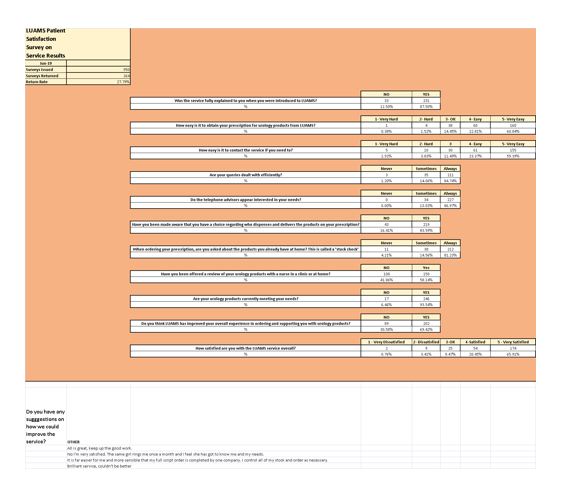


Liverpool Urology Appliance Management Service
In 2017 Liverpool CCG recognised there was a need to review the way that patients using urology/catheter appliances were managed. They estimated they had 1400 patients with a rising cost of £1.6M. The estimation on patient numbers was a driving factor as they didn’t actually know how many patients they had using catheter appliances.
Urology patients using appliances would access their prescriptions from GPs who by their own admission had little knowledge of this extensive range of products. This led to patients receiving repeat prescriptions, over ordering, waste and a lack of understanding of how to use and store these products. In some cases products were given that were unsuitable for patients to use.
Patients struggled to access specialist urology care in the community due to stretched resources within community care and a lack of awareness. The pathway between hospital care, where most of the products are initiated, and community care, was disjointed lacking communication and a pathway of care. Management of indwelling catheters and continuing support was particularly lacking. Some patients received no follow up or guidance on the management of their products once discharged from hospital.
Liverpool CCG needed to develop a centralised support service responsible for all aspects of Catheter Appliance prescribing, overseen by specialist Nurse Clinicians. We knew, as a local service, we could set up a model that could meet the requirements to solve the above issues.
Aims of the pilot service
The pilot was to run for 2 years with clear objectives.
- Reduce total prescribing costs associated with Catheter Appliance
- Improve access to Catheter Appliance related specialist advice and support;
- Reduce Catheter related consultations and queries in General Practice
- Gain positive feedback from all stakeholders
Bullen Healthcare is a patient-centred organisation with over 160 years’ experience of delivering life-changing healthcare and successfully tendered to partner the pilot.
Our driver to support this pilot initiative from Liverpool CCG lies with our heritage and longevity in supporting the since its inauguration in 1948. The Bullen family are all local to Liverpool and whilst realising they have resources that the NHS could utilise to meet the above challenges also feel a sense of loyalty to Liverpool and its people.
Actions
- To engage all stakeholders involved in the new service.
- Building and maintaining a live register of all Catheter patients, to include a record of prescribed appliances and clinical reviews.
- Providing a safe and efficient centralised prescribing service responsible for all Catheter prescribing needs.
- Delivering a pro-active monthly prescription ordering service that is easy to access, responsive, timely and incorporates clinical support.
- Issuing prescriptions for Catheter Appliance products, authorised by a specialist Nurse Prescriber who has in-depth understanding of Catheter Care, delegating this responsibility from General Practice.
- Ensuring prescribed product quantities, product type and any changes of product are in response to clinical need.
- Allowing patient choice of dispenser
- Providing clinical support from a specialist Nurse Prescriber in the form of home or clinic review annually as a minimum.
- Responding effectively to secondary care Catheter services in terms of new patients requiring access to the service and existing patients where a review or change in treatment has taken place.
- Mechanisms to refer patients to appropriate NHS services where further intervention outside of the scope of the service is required.
The Liverpool Urology Appliance Management Service (LUAMS)
Our process includes the well-being check-in every four weeks. This is a planned telephone conversation with each patient to:
- Conduct the well-being check-in
- Ask the four triage questions
- Complete a stock check of products
- Agree the order and dispenser
- Re-diary the next call in four weeks’ time
The triage question responses prompt the call advisor to respond to patients’ needs including completing the order as required with no changes and/or referral to the nurse advisor for a phone call or appliance use review. Urgent responses are triggered as required.
All the above information is then reviewed by the specialist nurse prescriber (SNP) before a prescription is agreed for dispensing.
Outcomes
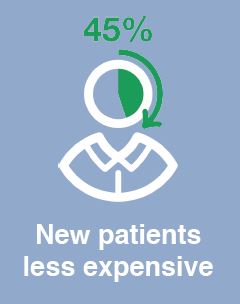
New patients to the service are 45% less expensive

Overall we have seen a reduction in A&E attendances with a 30% reduction in A&E admissions, both with Catheter Passport and the involvement of LUAMS

95% of patients rated our nursing service as very good or excellent.

86% of patients we surveyed said that they are very satisfied or satisfied with the LUAMS service overall.
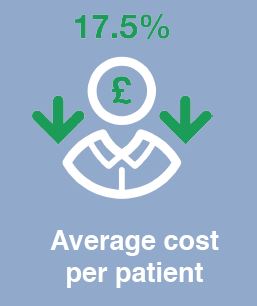
Assuming there will be a total of 3,217 patients using the service by December 2022, up from approximately 2,200 currently. The cost of handling an individual patient for one month will have decreased to £63.37 by Dec 2022; down from £77.13 in June 2019 - a 17.8% saving
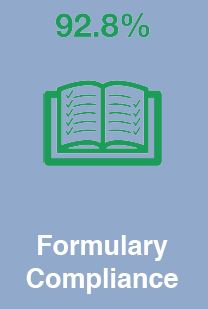
Formulary compliance is 92.9%
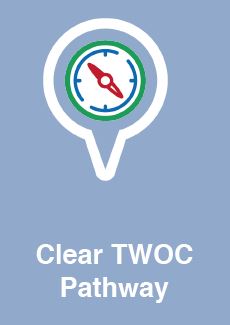
Facilitated stakeholder engagement between acute and community leading to a better, more efficient and accessible TWOC pathway

GPs in Liverpool CCG said they were 100% satisfied with the LUAMS service
Since the LUAMS pilot went live we have successfully on-boarded 3,620 patients onto the service.
LUAMS is now handling 350 more patients than it was at its introduction in January 2018
The average cost per patient per month from £93.55 to £77.13 per patient per month in June 2019 – a 17.5% reduction.
The LUAMS pilot is handling approximately 200 more patients each six months.
The information that we now have on each patient, along with the triage question responses, has proved invaluable data impacting on infection prevention and control.
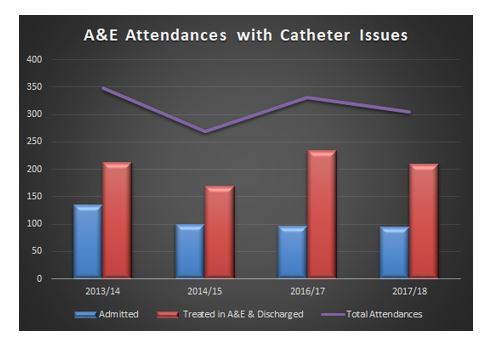
Mitigating risk and driving successes
Successes that have mitigated identified risks for the LUAMS pilot and indeed enabled the service to flourish have been:
- Developing and delivering the mobilisation and rollout plans to ensure the service reflected the requirements of Liverpool CCG, to ensure all stakeholders understood the role of LUAMS and how to access it and to ensure all patients could be cared for as individuals
- Stakeholder meetings held at the local LUAMS office – this included both acute trust senior urology nurses, the lead for Mersey Care bladder and bowel service and the LUAMS team
- Clear proactive communication with all patients when booking their AUR, both written and verbal
- Our ability to deliver the high formulary compliance data during the pilot (92.9% compliance)
Critical success factors
During the mobilisation of LUAMS we believed that there were a number of factors which were critical to the successful implementation of the service. We believe we were successful in managing/delivering these factors:
- A strong working relationship between the service provider and Liverpool CCG
- Collaboration between primary and secondary care clinicians
- The service provider having the relevant experience and expertise to deliver the service locally
- The service provider being a Liverpool-based organisation, employing people from Liverpool with local delivery drivers
- Award-winning Liverpool premises to deliver the appliance management service
- Clear communication to all relevant stakeholders
- A defined migration path for patients joining the service
- The promotion of patient choice regarding dispenser
- Trust – only providing products based on clinical need
- Timelines and milestones for implementation
- Relevant systems and processes being in place
- An expert team of clinicians and customer care contacts in place
- Data protection compliance
